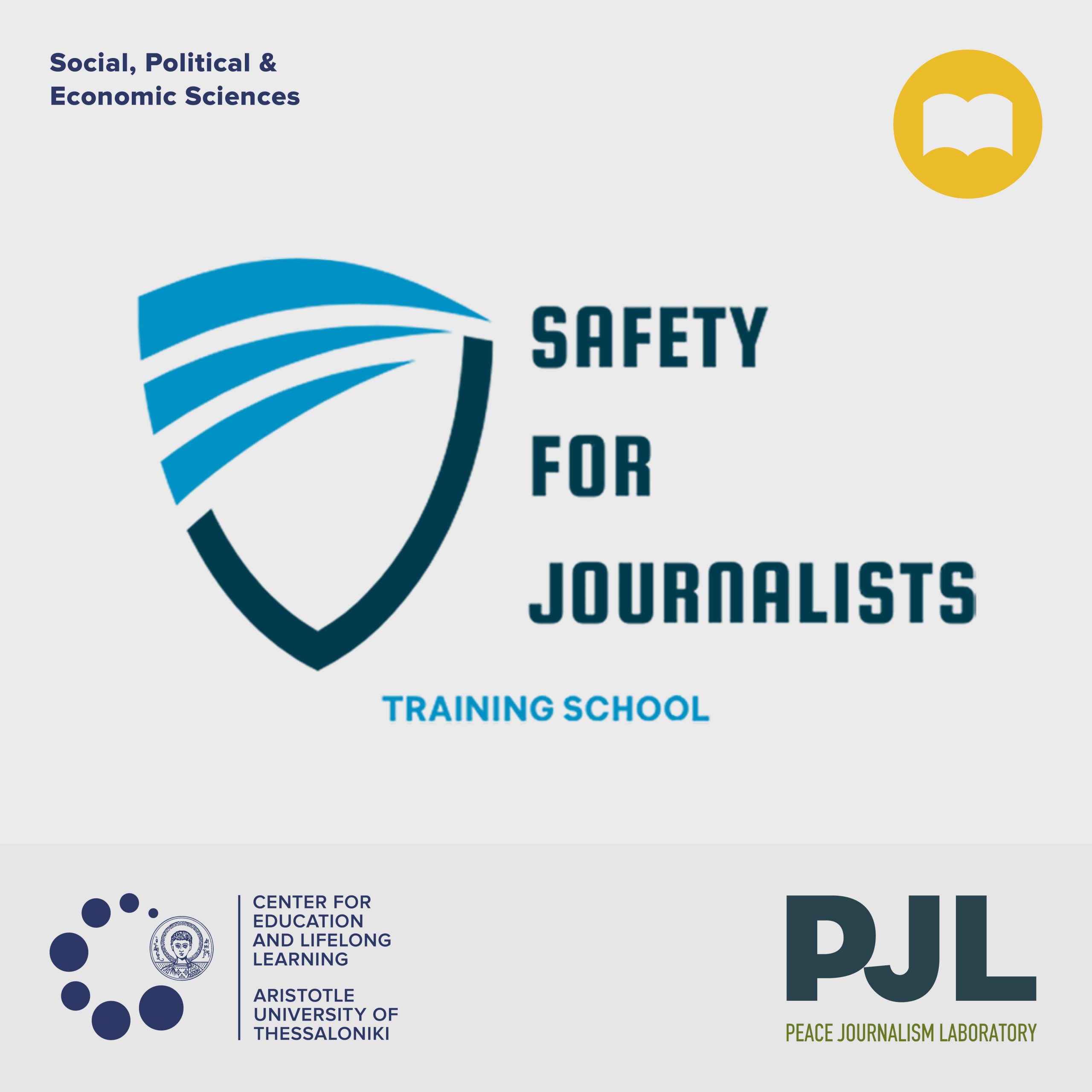2023-05-08 - 2023-05-12 ( 29 ώρες )
Διά ζώσης
Η υποβολή αιτήσεων ολοκληρώνεται στις

The Center for Education and Lifelong Learning of the Aristotle University of Thessaloniki welcomes you to the Safety for Journalists – Training School, a 29-hour course via physical presence.
The Director of the Programme is Nikolaos Panagiotou, Associate Professor at School of Journalism & Mass Communications of Aristotle University of Thessaloniki.
Application
Candidates submit the application form online.
Each application has to be accompanied by the following document or copies:
The developments at the European and global level and the need for the mass media to send people to war zones to cover the events, makes their training necessary. Those who work in the media are called upon to both inform the public about what is happening during the war and to protect themselves. The program combines training from people who have covered war zones or crisis situations with the expertise of military professionals. The program is structured around keynote presentations by distinguished experts, roundtable discussions and intensive on-site training. The course will be delivered in a mixed methods teaching style and includes lectures, discussion, field training, a policy workshop and practical training.
Upon completion of the course, participants will:
a) Introduction to the environment (awareness),
b) Challenges & developments in the reporting of wars and crises,
c) Law of armed conflicts,
d) Field security,
e) Dealing with fixers,
e) Hostile Environment Awareness Training (HEAT),
f) Data security,
g) Health, first aid and stress management,
h) Basic administrative documents and
i) Treatment of trauma.
The program is addressed to professionals in the field of mass media and to students of corresponding departments who are called to cover war situations in news.
Selection will be due to scoring. Order of priority will be followed.
The curriculum includes two main parts, theoretical and practical field training. For the development of the training program, in addition to the specialized experience of those involved, research was conducted in order to record both the needs and concerns of young people who would be interested in working as war correspondents, as well as the experiences of war correspondents, so that the result focuses and responds to the real needs of the learners.
The course provides participants with:
Hoskins, A., & Loughlin, B. (2018). War and media the emergence of diffused war. Polity.
Allan, S., & Zelizer, B. (2011). Reporting war journalism in wartime. Routledge.
Patrikarakos, D. (2017). War in 140 characters: How social media is reshaping conflict in the twenty-first century. Basic Books.
Upon successful completion of the course, participants will be awarded a Certificate of Attendance.
For the successful completion of the program, the participants should:
For further information, please contact the Director of the Peace Journalism Laboratory.
Name: Nikos Panagiotou
Email: ipjllab@gmail.com
Tel: 0030 2310 992058
Tuition fees cost will be 800€ (includes administrative costs and accommodation (half-board)), 400€ without accommodation.
The payment will be done in one instalment in Bank account.
Μπορείτε να εγγραφείτε στο Newsletter για να μαθαίνετε πρώτοι για τα νέα προγράμματα του ΚΕΔΙΒΙΜ ΑΠΘ.